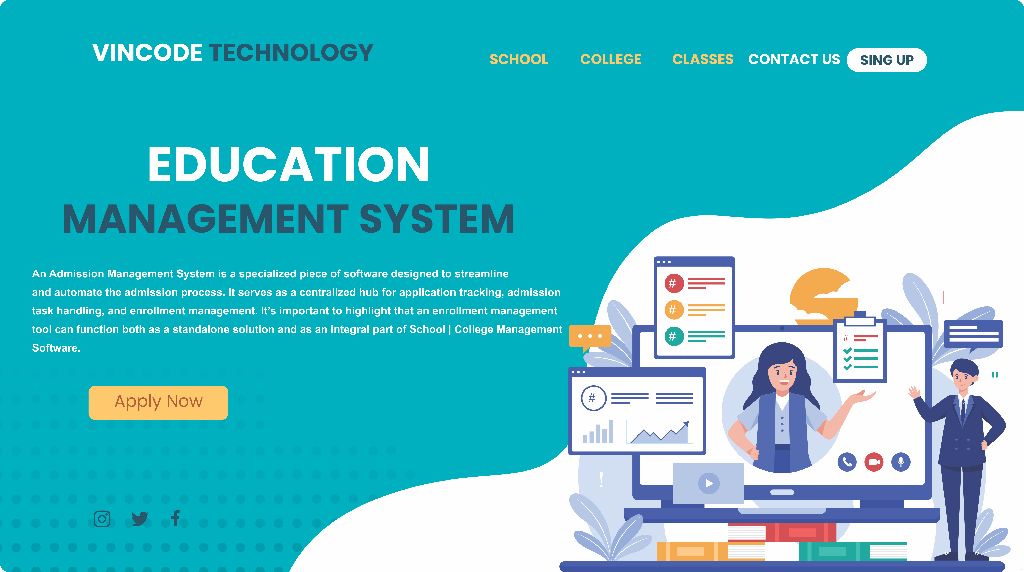Education ERP

Education ERP (Enterprise Resource Planning) refers to a specialized software solution designed to manage and streamline the administrative, academic, and operational processes within educational institutions such as schools, colleges, universities, and training centers. It integrates various functions and departments into a unified platform, facilitating efficient management and communication across the institution. Here are the key features and components typically found in education ERP systems:
1. Student Information System (SIS): Manages student data including enrollment, attendance, grades, academic progress, and communication with parents/guardians.
2. Admissions Management: Facilitates the entire admission process from application submission and selection to enrollment and fee payment.
3. Academic Management: Handles curriculum planning, course scheduling, timetable management, and assignment tracking.
4. Faculty and Staff Management: Manages faculty information, attendance, workload distribution, and performance evaluation.
5. Financial Management: Automates fee collection, tracks payments and expenses, manages budgets, and generates financial reports.
6. Library Management: Tracks library resources (books, journals, digital resources), manages circulation, and supports online cataloging and reservation.
7. Examination and Assessment: Manages exam schedules, generates hall tickets, records results, and provides analysis of student performance.
8. Communication and Collaboration: Facilitates communication between administrators, faculty, students, and parents through announcements, messaging, and forums.
9. Attendance and Leave Management: Tracks student and staff attendance, manages leave requests, and generates attendance reports.
10. Analytics and Reporting: Provides insights through analytics dashboards and customizable reports on various aspects such as student performance, financial trends, and operational efficiency.
11. Integration: Integrates with other educational tools and systems such as learning management systems (LMS), online learning platforms, and external databases.
12. Security and Data Privacy: Ensures data security, privacy compliance (e.g., GDPR, FERPA), and access control to protect sensitive information.
Education ERP systems aim to improve efficiency, transparency, and collaboration within educational institutions, enabling them to better manage resources, enhance educational outcomes, and provide a seamless experience for stakeholders including students, parents, faculty, and administrators.